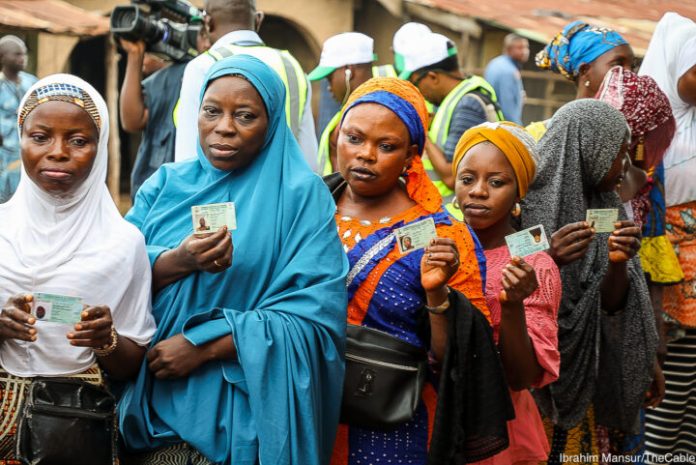The United Nations (UN) says that the participation of women in Nigerian politics is very low compared to other African countries.
Beatrice Eyong, representative of UN Women in Nigeria and the Economic Community of West African States (ECOWAS), said this Wednesday at a one-day meeting organized by the Center for Democratic Development (CDD).
Eyong, represented by Desmond Osalobo, a program specialist, said the percentage of women currently in the national parliament is 4.1, adding that the figure is “unsatisfactory and appalling.”
“The participation of women in politics in Nigeria is terrible, very unsatisfactory and very, very unacceptable,” she said.
“Because if you look at the African region, Nigeria is one of the lowest countries in terms of representation in parliament.
“Nigeria has only 4.1 percent in parliament as we speak to the national parliament, while in other countries like Rwanda it is 67 percent, Senegal it is around 57 percent.
“These are all countries with very high-level representation of women in parliament, but for Nigeria it is very unacceptable.”
She said of the patriarchy in Africa, “social beliefs and religion have taken over and men of course are dominant in society.”
“We support the media, we also support political parties, building the capacity of women and ensuring that women can compete effectively,” she added.
“Also, in one way or another, we have provided a kind of training both internally and externally to women, where they go out to learn from other nations where they have been able to advance.
“We are training young women known as a young women’s academy, where if in the future we want young women who are interested in governing, they can jump into political parties and be able to change the narrative.
“We have met with traditional rulers, we have met with religious leaders, we have met with a media organization, we are trying to sensitize and mobilize all stakeholders and tell them the importance and benefits of women being part of the government”.
Dorathy Bello, director of gender and exclusivity at the Independent National Electoral Commission (INEC), called on political parties to enforce and adhere to the constitutional norms they promulgated.
“The commission meets regularly with political parties, putting pressure on their leaders to guarantee internal party democracy to guarantee the inclusion of women,” Bello said.
“Therefore, the commission constantly reminds you of the importance that not only the commission has for the people, the media, the civil society organizations as a whole, we can all maintain and intensify this defense, so that our country is better. ”.







